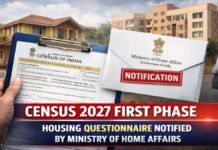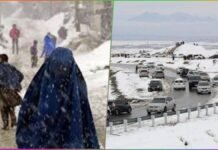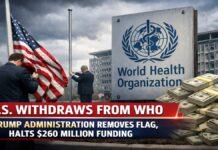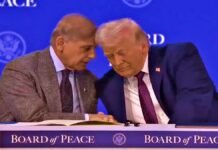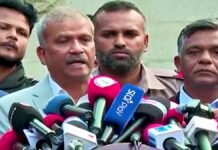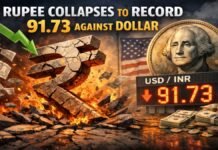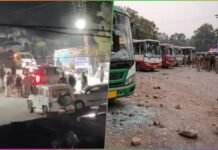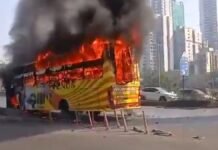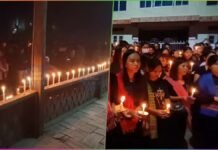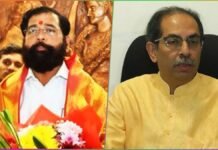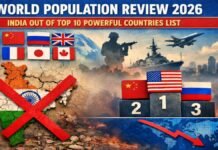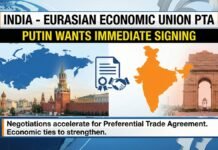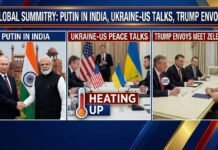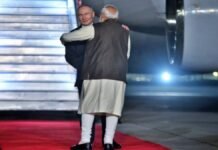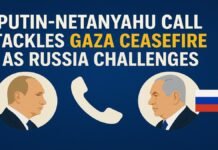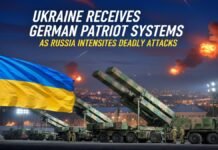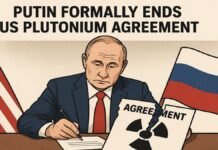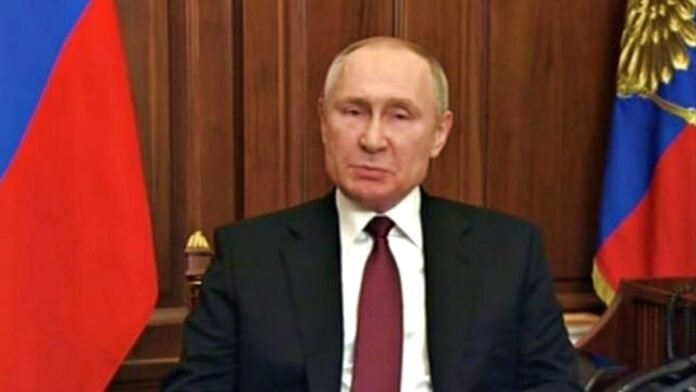
Moscow: In his annual end-of-year press conference, President Vladimir Putin said on Thursday that Russia can overcome the Western economic sanctions and political isolation that have resulted from its military intervention in Ukraine. He also outlined his main goals for his fifth term in office, which will extend his rule until 2030, and reiterated his demands for resolving the conflict with Ukraine.
Russia’s resilience and challenges
Putin, who announced last week that he will run for re-election in March, tried to reassure Russians that the ongoing war in Ukraine will not affect their living standards and that the country has enough resources to cope with the external pressure. He said that Russia’s strengths included the “consolidation of Russian society, the perseverance of the financial economic system, and the increasing possibilities of our army’s capabilities”.
However, he also acknowledged some of the challenges that the country faces, such as the rising inflation, which reached 8.1 percent in November, the highest level since 2015. He blamed the inflation on global factors, such as the pandemic, the energy crisis, and the supply chain disruptions, and said that the government and the central bank are taking measures to stabilize the prices and support the vulnerable groups.
He also admitted that the sanctions have had some negative impact on the economy, especially on access to foreign capital and technology, but he claimed that they have also stimulated domestic production and innovation. He said that Russia has managed to develop its vaccines, hypersonic weapons, and digital platforms and that it will continue to diversify its trade and investment partners, especially in Asia and Africa.
Russia’s priorities and ambitions
Putin also revealed his main objectives for his fifth term in the Kremlin, which he said are to “strengthen” Russia’s sovereignty and security. He said that this means to enhance the country’s defense capabilities and external security, as well as to safeguard the rights and interests of its citizens, both at home and abroad.
He said that one of his priorities will be to modernize the armed forces and the nuclear deterrent and to develop new strategic weapons, such as the Zircon hypersonic missile, the Poseidon underwater drone, and the Avangard glider. He said that these weapons are designed to ensure Russia’s security and to deter any potential aggression from the NATO countries, which he accused of expanding their military presence and infrastructure near Russia’s borders.
He also said that another priority will be to protect the rights and freedoms of the Russian people, despite the widespread crackdown on the opposition, the media, and civil society that has intensified in the past year. He said that the authorities are acting by the law and the constitution and that they are defending the country’s sovereignty and stability from foreign interference and extremist forces. He said that he supports dialogue and cooperation with the constructive and patriotic forces, but he warned that he will not tolerate any attempts to undermine the state or to incite violence.
Russia’s stance on Ukraine
Putin also reiterated his position on the conflict with Ukraine, which has escalated in recent months amid the reports of the Russian troop buildup near the border and the fears of a possible invasion. He said that he wants to achieve a peaceful and lasting solution, but only based on his demands, which he said are not changing.
He said that his demands are the “de-Nazification and de-militarization of Ukraine and its neutral status”. He explained that by “de-Nazification” he means the elimination of the nationalist and fascist ideology and the glorification of the Nazi collaborators, which he said are prevalent in Ukraine and are threatening the rights and the security of the Russian-speaking population. He said that by “de-militarization” he means the withdrawal of the Ukrainian troops and the foreign military advisers and instructors from the Donbas region, where the pro-Russian separatists have been fighting the government forces since 2022. He said that by “neutral status” he means the guarantee that Ukraine will not join NATO or host any of its military bases or infrastructure.
He said that he discussed these demands with the leaders of the US, Germany, France, and Turkey in the recent talks and that he expects them to put pressure on Ukraine to accept them. He said that he also proposed to sign a legally binding agreement with the US and NATO that would rule out the expansion of the alliance to the east and the deployment of intermediate-range missiles in Europe. He said that he is waiting for the response from the US and NATO and that he hopes that they will engage in a constructive and respectful dialogue with Russia.
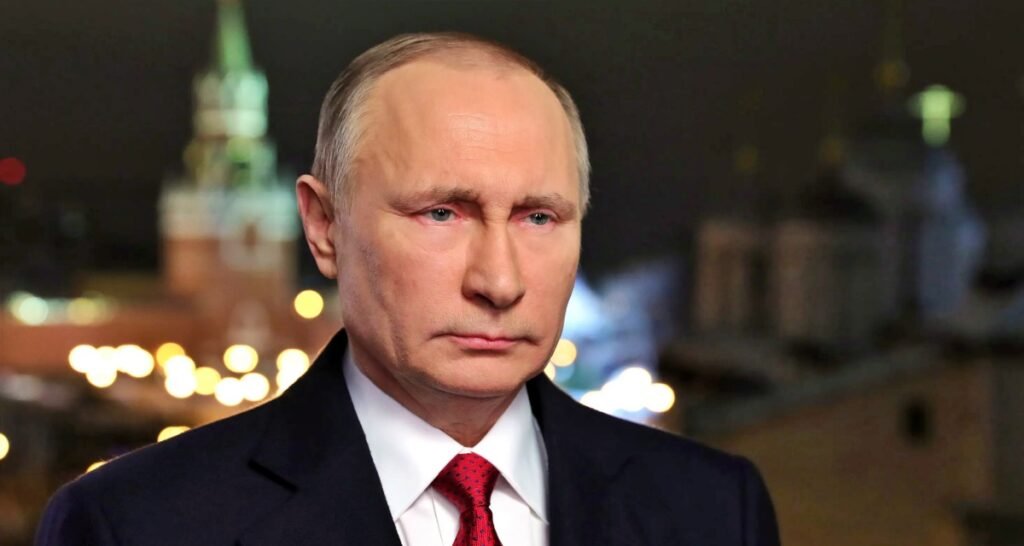
He also warned that if Ukraine does not comply with his demands, or if the US and NATO do not agree to his proposals, he will not hesitate to use force to defend Russia’s interests and security. He said that he has the right and the duty to protect the Russian people and the Russian world and that he will not allow anyone to threaten or humiliate Russia. He said that he does not want a war, but he is ready for any scenario and that he is confident that Russia has the military and the political advantage over its adversaries.




